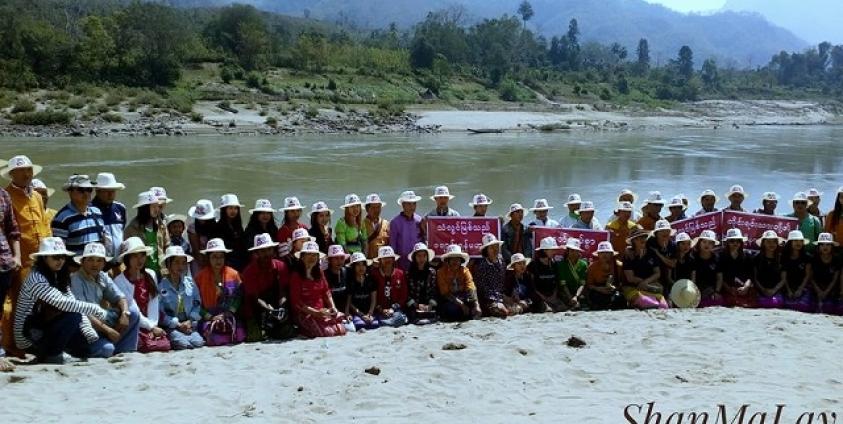A number of Burmese environmental organizations, including Burma Rivers Network, Save the Salween Network and The Burma Environmental Working Group (BEWG), released a statement today urging the National League for Democracy-led government to abandon plans to build more than 50 dams on the Salween and Irrawaddy rivers, particularly in conflict zones.
“Under Burma’s Energy Master Plan, over 50 planned dams, mostly on the Salween and Irrawaddy rivers and their tributaries, will massively increase hydropower production from 3,000 to 46,000 megawatts by 2030,” reads the statement. “Three-quarters of which will be exported to neighbouring countries.”
The statement was released to coincide with the International Day of Action for Rivers, an annual event on March 14, when protestors around the globe gather to voice opposition against governments and investors who push through plans to construct hydro-dams in controversial areas.
On January 27, 2017, Shan Herald reported that the International Finance Corporation (IFC), a member of the World Bank Group which finances private sector initiatives in many developing countries including Burma, conducted workshops to promote hydropower projects in the country.
“Foreign investors should not be building dams in Burma’s conflict zones,” said Mi Ah Chai, coordinator of Burma Rivers Network. “The dams are fuelling conflict, human rights abuses and displacement, and destroying local environmental resources,” she said in the joint statement.
Nang Moe Thauk Pan of Save the Salween Network and a joint spokesperson for today’s statement told Shan Herald that the hydropower projects will affect the peace process – at a point when negotiations are being tabled to bring together the Burmese government, the military and ethnic armed groups. Known as the 21st Century Panglong Conference, or 21CPC, the peace talks are being led by Burma’s State Counselor Aung San Suu Kyi.
Nang Mao Thauk Pan said, “Fighting continues in Shan and Karen states, but the government perseveres in trying to build dams. Clearly, it is going to impact the peace process.”
The statement went on to say that no dams should be built until Burma becomes a federal union, and that only the people living in those areas should have the right to decide what should be done with their natural resources.
Environmentalist Nang Moe Thauk Pan said that she stands by this statement and that people who live along the rivers also stand by the statement.
“We don’t need any dams on the rivers,” she said. “We want to live peacefully. We love our nature and our rivers. Our rivers are our lives.”
Events in support of imposing a ban or suspension on hydroelectric dams were held today in Mon State capital Mawlamyine; the Kachin State town of Chipwi; Mudraw in Karen State; Kunhing Township in Shan State; and in Karenni State.







